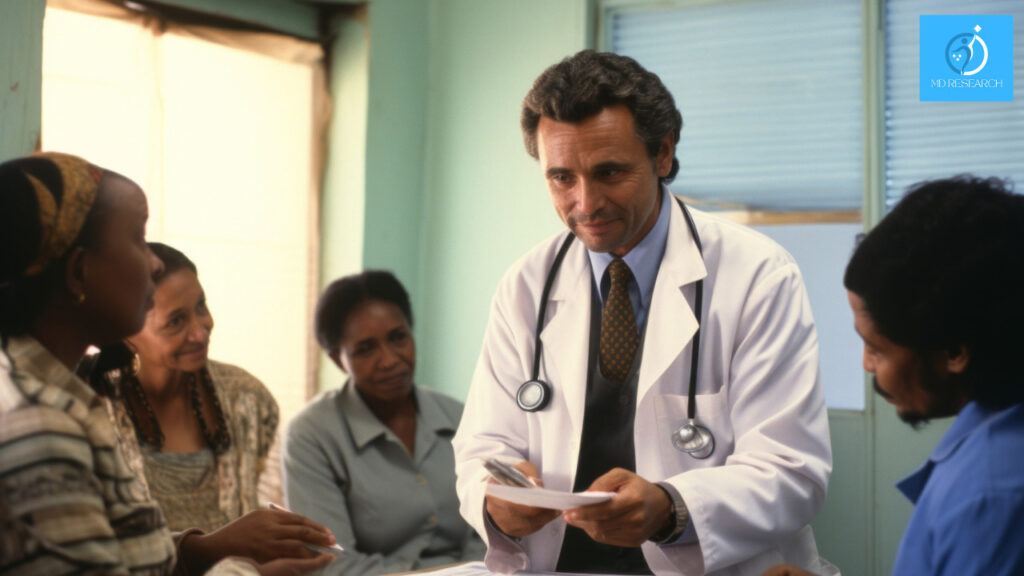
Starting the USMLE journey as an International Medical Graduate (IMG) might initially seem overwhelming, with many myths suggesting it takes years. However, don’t be discouraged! You can navigate this process smoothly and efficiently with the right plan and determination.
The USMLE journey is a significant step towards achieving your dream of practicing medicine in the United States. With a well-structured timeline, you can tackle each milestone confidently. Here’s a guide to help medical students, interns, and graduates stay on track and achieve success with minimal delays.
Breaking Down the Timeline
We’ll break the journey into two main phases:
- Getting Started to Getting Application Ready
- The Match
Getting Started to Getting Application Ready
Medical Students
Starting early as a medical student offers a significant advantage. Here’s a streamlined approach:
The Start
- First or Second Year: Begin preparing for USMLE Step 1. Familiarize yourself with the USMLE style early to avoid re-studying later.
Taking Step 1
- Third Year: Aim to take Step 1 this year when your basic sciences knowledge is fresh. Finish with a couple of months to spare for your third-year exams.
Step 2 CK, USCE, and Step 2 CS
- Final Year: Prepare for Step 2 CK, taking the exam towards the end of your internship’s first half. Once you have your Step 1 results, apply for clerkships and Step 2 CS.
- Schedule Step 2 CS and clerkships during the second half of your internship.
Clerkships and Step 2 CS
- Complete your clerkships and Step 2 CS after 1-2 rotations.
Application Preparation
- Finish your internship, graduate, and get ECFMG certified by September 15th (or the application start date). Simultaneously, prepare for Step 3 and aim to have results ready by the application start date or by December.
Research and Volunteering
- Engage in research projects (like ICMR) and volunteering activities throughout medical school to build your CV.
Interns
Starting during your intern year is common. Here’s how to manage it:
The Start and Step 1
- Start of Internship: Begin preparing for Step 1. With dedication, aim to complete it within 9-11 months. Consider taking a month off before the exam.
Step 2 CK, USCE, and Step 2 CS
- Mid-Internship: Prepare for Step 2 CK and take the exam in 6-7 months. After receiving Step 1 scores, apply for clerkships and Step 2 CS.
USCE and Step 2 CS
- Complete clerkships and Step 2 CS in the next 6 months.
Application Preparation
- Return to finish your internship, graduate, and get ECFMG certified by the application start date. Prepare for Step 3 to be ready by the application date or December.
Research and Volunteering
- Seek research opportunities during rotations and engage in volunteering.
Alternative Plan
- If extending your internship is not possible, find clerkships that don’t require Step 1 scores and complete them early in your internship.
Graduates
For graduates, a different strategy is needed, but it’s manageable:
Step 1
- Begin preparation and aim to take Step 1 in 7-9 months. It is advisable to verify medical credentials early.
Step 2 CK, USCE, and Step 2 CS
- Prepare for Step 2 CK and take the exam in 6-7 months. After receiving Step 1 scores, apply for clerkships and Step 2 CS.
USCE and Step 2 CS
- Complete observerships/externships and Step 2 CS in 5-6 months.
Application Preparation
- Get ECFMG certified by September 15th. Step 3 is crucial for those with longer gaps, so have results ready by the application date.
Research and Volunteering
- Engage in research during US rotations and volunteer with organizations like NGOs and Doctors Without Borders.
The Match Timeline
ERAS Application
- Ensure your ERAS CV and personal statement are polished. Start early and aim to complete your first draft by late July.
Program Research
- Research programs thoroughly using tools like Sarthi List, Frieda, and Residency Explorer. This preparation is crucial for contacting programs later.
Letters of Recommendation (LORs)
- Ensure LORs and your MSPE are uploaded by late August. Request LORs early to avoid delays.
Interest Letters
- Prepare and send interest letters to programs between July and mid-September.
ECFMG Certification
- Aim to be ECFMG certified by August. While not mandatory, it helps to have this completed before applying.
Application Day
- Apply by September 15th. Interview invites typically start arriving in late September and continue until mid-February.
Interview Preparation
- Prepare thoroughly for interviews, focusing on experiences from medical school, work, and volunteering. Start this preparation early.
Final Thoughts
The USMLE journey requires time, commitment, and a well-thought-out plan. Start early, stay focused, and you’ll navigate this path successfully. For more personalized guidance, check out our services designed to help you every step of the way.
